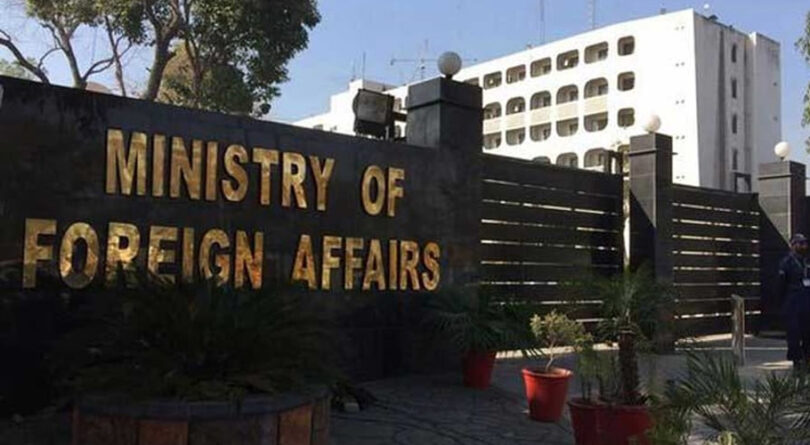Pakistan Foreign Office has categorically condemned the highly irresponsible remarks by a senior BJP politician and Chief Minister of Uttar Pradesh about taking back Sindhu, a term normally used by Indian leaders for the region around the Indus River in southern Pakistan. Foreign Office Spokesperson Mumtaz Zahra Baloch said the Indian politician’s provocative remarks are inspired by the gratuitous assertion of ‘Akhand Bharat’ (undivided India) and reflect a perverse view of history.
This is a decades-old trend in India’s domestic politics to incite hate against minorities and spread war hysteria against neighbours to boost public rating among Hindu nationalists which form more than 80% per cent of the Hindu populace in that country. Historically, the Bharatiya Janata Party (BJP) government has, at times, employed nationalist rhetoric and invoked historical events, including wars, to build support and shape public opinion in India. These heinous tactics had been blatantly and repeatedly used by the Bharatiya Janata Party (BJP) to incite war hysteria in the public and stoke tension with the neighbouring states after the Hindu nationalist group gained the country’s premiership under Mr Atal Behari Vajapai in the late 90s. Later these strategies were extensively used by the Modi regime against religious minorities, low caste Hindus and neighbouring countries particularly Pakistan in 2014, 2019 and at this time when curical state elections are underway across Bharat.
Previously, a BJP leader and Deputy Chief Minister of Karnataka proposed a plan to demolish over 600 Muslim religious seminaries in India, which was followed by provocative remarks against the Islam and Muslim poise personalities which prompted countrywide protests across India. Besides, the verbal desecration of religious beliefs of Muslims and Christians in their Country, Indian leaders have approved politically motivated legislations in the Indian parliament including cow protection and religion conversion laws, inter-religion marriage act, citizenship act, and residential segregation that aimed at promoting Hindu nationalism and hate against minorities and deepened polarization in Indian society.
Presently, multiple states’ elections are underway, while grand nationwide polls are expected in the coming months in India, while the Modi-led Bharatiya Janata Party (BJP) faces serious challenges in the upcoming electoral contest at the hands of a 28-party bloc of Indian National Development Inclusive Alliance (INDIA) which is jointly contesting the future general election against the BJP under one banner. The BJP leaders have resorted to hatred and warmongering to stoke tension with Pakistan while Indian Intelligence under the guidance of NSA Ajeet Doval is mulling over the scenarios to stage a false flag operation in the Indian-Occupied Jammu and Kashmir (IIOJK) to recast the episode of Pulwama attack and mount tension on Pak-India border to pave the way for Modi’s third straight victory in the crucial polls.
The government of Pakistan has time and again sensitized the global community about the Indian mindset that seeks to subjugate the identity and culture of not only India’s neighbouring countries but also its religious minorities. In fact, such insane ideas and extremist theories are being increasingly peddled by BJP-RSS to further their divisive and parochial political agenda, which has grave consequences for regional peace and stability. Historically, New Delhi’s hegemonic designs coupled with growing Hindu extremism castes grave security concerns among the regional states, a majority of whom already faced Indian aggression in the past. The government of Pakistan must share the nefarious designs of Indian leaders with the global community including the United Nations, so the Modi regime’s attempts to incite violence against Muslims or stage false flag operations along the Pak-India border could be exposed to the world and be neutralized effectively. Meanwhile, the world should be aware of the draconian face of Indian leaders that had long been hiding behind New Delhi’s fake secularism, and fraught democracy in the past.







